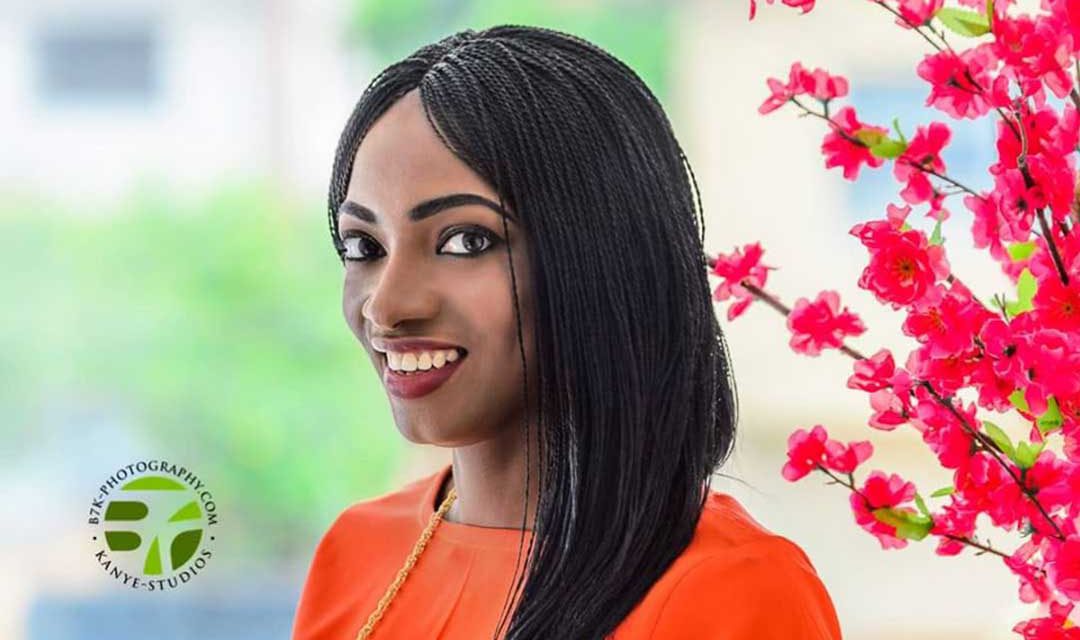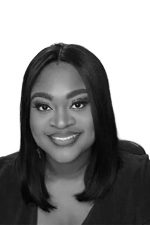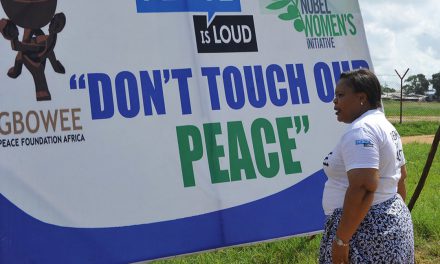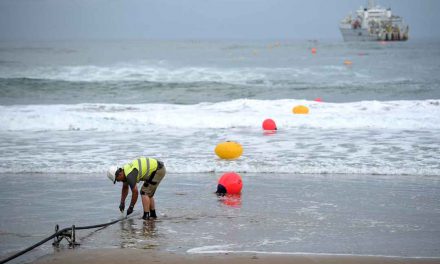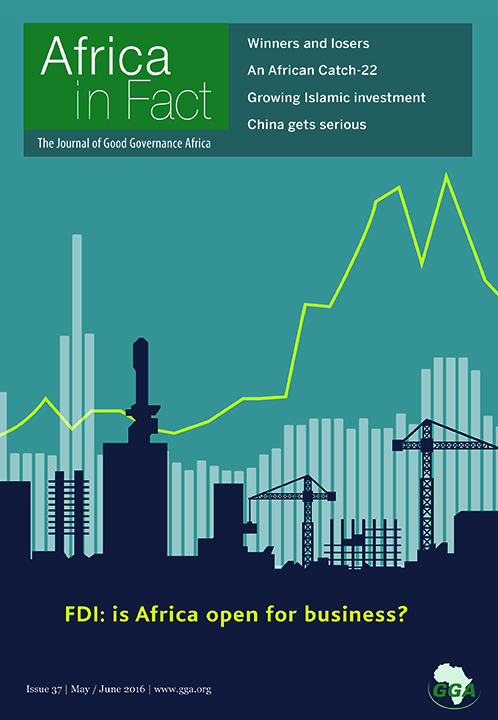Media: women in the news
Although there are still relatively few women occupying leadership positions in African media organisations, that is changing in countries like Nigeria and Kenya
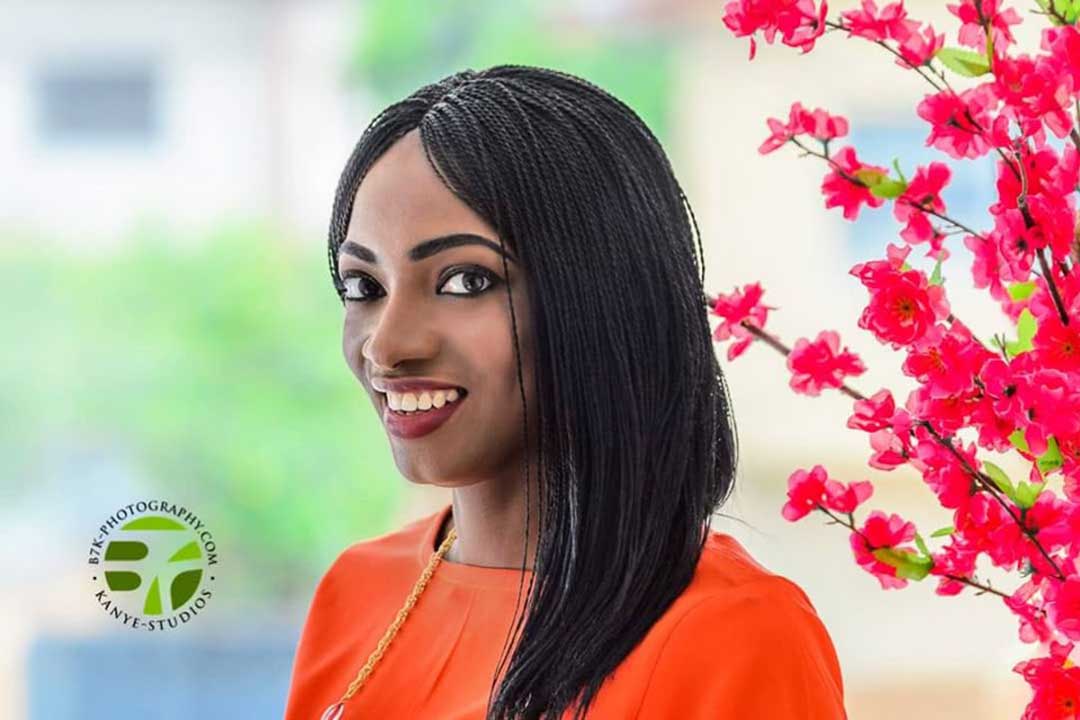
Funke Osai-Brown Photo: Jayne Augoye
Africa has a perennially poor record on gender issues. From maternal mortality to economic empowerment, the continent is beset by social problems that particularly affect women. Of 20 countries on the lowest rungs of the 2019 Women, Peace and Security Index, published by the Georgetown Institute, for example, 14 are in Africa. The remaining six are in the Middle East. The index measures variables such as women’s security, justice, and inclusion. The latter covers areas as diverse as representation in government, employment, financial access, and education. The gender gap affects all sectors, including media leadership and ownership, according to the African Media Barometer in its analysis of 31 African countries in 2018. From Nigeria to Kenya to South Africa, few female journalists sit in boardrooms. In South Africa, for instance, the number of female reporters has grown in recent years, but only a few occupy editorial and management positions, according to African Media Barometer. But there is a trend: where women step into media management and leadership, they appear to do uniquely well.
In Kenya, Eunice Mathu, the country’s sole female media heavyweight, has managed to keep her magazine, Parents, of which she is founder and editor-in-chief and which started publication in July 1986, on the newsstands for more than three decades. In Ghana, Stella Wilson Agyapong of Oman FM Limited and Edith Dankwa of Business and Financial Times Limited, are the leading lights of the country’s media. They have led some of Nigeria’s most respected media brands for years, according to the Media Ownership Monitor, a study conducted by the Media Foundation for West Africa and Reporters without Borders. In Nigeria, Mo Abudu, a female media entrepreneur, has proved that being a woman can overcome a continent-wide problem of exclusion from the highest levels of media operations. Abudu, 55, runs the West African nation’s biggest entertainment channel, EbonyLife TV, which airs in 49 African countries, as well as in the United Kingdom and the Caribbean. In Nigeria, her achievement is all the more remarkable given that the odds really are not in favour of women running major media corporations. Very few Nigerian female-focused media outfits are led by women.
“The Nigerian media is very patriarchal, there is no gender equality in the media,” notes UK-based Nigerian broadcaster and lawyer Freddie Merriman-Johnson. Recent research conducted by , a leading Nigerian media training and research organisation, confirms that only a few women occupy top editorial positions in the country. Of the 12 newspapers audited, only the New Telegraph newspaper is female led. The origin of the marginalisation of women is traced in a 2019 doctoral thesis, ‘Women in Nigerian News Media: Status, Experiences, and Structure’ by Ganiyat Tijani-Adenle. Nigerian women were significantly absent from the country’s media scene from the onset, according to Tijani-Adenle. She attributes the inferior position of women in the Nigerian news media largely to prevailing gender norms and nepotism. Nonetheless, Nigeria has had its fair share of female media heavyweights over the years. The late Enoh Irukwu was the first woman to read the network news on the radio in the late 1960s and Anike Agbaje-Williams (first female senator, by appointment) was the first female face on TV in Africa in October, 1959.
Other talented broadcasters followed the trail blazed by these two pioneers, who flourished at a time when the broadcast media were largely under strict government control until the then-military government deregulated the industry in the 1990s. It has taken a while, but the more open media environment has increasingly attracted newcomers, and offered new opportunities to practising broadcasters. Abudu’s foray into the Nigerian media scene began in 2006 with the launch of the widely-syndicated talk show Moments with Mo. In the 14 years since then, she has transitioned from a human resource specialist to owning one of Africa’s largest media operations. Abudu began her professional career as a recruitment consultant in 1987. Then she pitched her tent at Exxon Mobile and, after a decade there, established her own firm, Vic Lawrence & Associates Limited, in 2000. More than a decade later, she would become the first woman to launch a pan-African TV channnel, EbonyLife TV. “My time at Mobil prepared me for the task ahead.
It gave me a deeper understanding of the business structures and principles that I still refer to even today,” Abudu told Africa in Fact. The intensive corporate experience also gave her a basis on which to confront the patriarchy of the Nigerian media landscape, she adds. As part of that confrontation, her management team and department heads are all female. Some commentators have attributed her success to her connections to people in the corridors of power. There’s no denying that she is connected; her experience as a human resource expert and trainer with a major international corporation gave her access to high net-worth individuals. Obtaining funding for her own media venture apparently came easier for her. Funke Osai-Brown, publisher of the Lagos-based Luxury Reporter magazine, says there’s little doubt that Abudu’s privileged background and access to high net-worth clients have contributed to her success. “Mo was born in England to privileged parents, attended the best of schools. Then she moved to Nigeria and got a top-paying job at Mobil – though until then, she had never considered a career in human resources,” she told Africa in Fact.
Even so, Osai-Brown, who has twice interviewed Abudu, recognises that other factors have played a role in her achievements. “One thing that stood out is her out is her ability to sell lofty ideas to interested investors,” she says. “That and her sheer determination.” Abudu is pleased to hear this. “It’s funny how people believe I am an overnight success. I have had many doors shut in my face, but one thing I can tell you is that I never give up. Anyone who has followed my career trajectory would agree that I’m not afraid to dream big things. DSTV (Multichoice’s sub-Saharan direct broadcast satellite service) didn’t give me a yes. I took five pilot episodes of Moment with Mo, expecting that it would be accepted. But they accepted only one of those episodes,” she says. In Nigeria, it is a common belief that female journalists have to sacrifice their marriage aspirations to have a career, especially if they aim to become leaders. Do women in Nigerian media find it a challenge to combine marriage with a demanding job? Funke Treasure-Durodola, the first female general manager of Radio Nigeria’s Radio One, thinks so. “Marriage is a limitation for a lot of women in leadership roles in media,” she says.
“The biggest business deals in the country tend to be closed at midnight, anyway. And as a married woman heading a newsroom, or running her own business, for example, you can’t attend meetings with potential investors in certain places where women are not welcome. So, you often can’t combine both responsibilities. One would have to give way for the other. Examples of this abound in Nigeria.” But despite the obstacles, there have been other women pioneers of Nigerian media. Amaka Igwe, who established Lagos-based Top Radio in 2011, was a prominent figure in the media and the Nigerian film industry until her death in 2014. Lola Fani-Kayode, who produced a famous TV soap opera in the mid-1980s called Mirror in the Sun, was another. A more recent success story is Agatha Amata, the managing director of Inside-Out Media Ltd, which launched Lagos-based RAVE TV, of which she is CEO. Chris Ihidero, a Nigerian filmmaker and head writer and editor on MNet’s TV drama Hush, worked closely with the late Igwe. He says that Nigerian women in media have had to be enterprising in facing the many pitfalls they confront.
One element missing until recently has been women’s ownership of media platforms, he says. “I believe Mo’s success story has started a movement,” Ihidero told Africa in Fact. “Women in the media are pushing back the boundaries of what is achievable for them.” Abudu’s career shows that women can aspire not only to have careers in the media, but also to be owners of media operations, he added. Pamela Sittoni, the executive director of Kenya’s Daily Nation, says it is “high time” more women took up senior media leadership positions around the continent. Speaking at Women’s Media Leadership Bootcamp, a five-day training event for female African journalists, held in Kenya in January 2019, Sittoni said: “A woman who is appointed as a managing editor or an editor-in-chief should not be celebrated as the first woman in that role.” Women in such roles should regard their achievements as a matter of their own drive and abilities, not as a rare exception, she told her audience. “This is your time.”
Jayne Augoye is the arts and entertainment editor at Premium Times, Nigeria. She has more than 12 years experience, spanning journalism and broadcasting. An award-winning journalist, some of her work has been published in The Punch and 234NEXT

